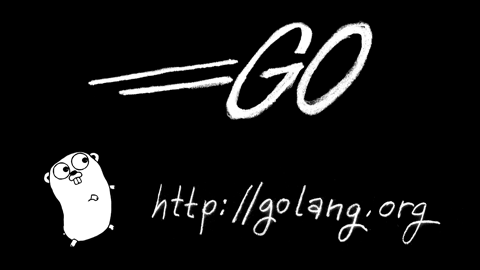| Go 1.3 Released |
| Written by Alex Denham | |||
| Friday, 20 June 2014 | |||
|
A major release of Go, Google's fast, statically typed, compiled language that feels like a dynamically typed, interpreted language, is available with better performance and improved tools.
Go, which was originally announced as an experimental language in 2009. is an expressive, concurrent open source programming language developed at Google. It has a C-like syntax with extras, and aims to be concise, clean, and efficient. It compiles quickly to machine code, but still offers the convenience of garbage collection and the power of run-time reflection. This video is a talk from OSCON 2012 in which Google’s Andrew Gerrand and Rob Pike (one of the original creators of Go) describe how and why Go was developed:
The new version, Go 1.3, comes six months after the last major release and provides better performance, improved tools, and support for running Go in new environments. Among the highlights of the new release is the ability of Godoc, the Go documentation server, to perform static analysis. You can choose to have analysis results presented in both the source and package documentation views, making it easier to navigate and understand Go programs. The performance improvements of the Go binaries are thanks to changes to the runtime, with an improved garbage collector, a new "contiguous" goroutine stack management strategy, a faster race detector, and improvements to the regular expression engine. The Go linker has also been overhauled, and the compilers and linkers have been refactored. The new version has experimental support for the DragonFly BSD, Plan 9, and Solaris operating systems. Another improvement is support for the Native Client (NaCl) execution sandbox on the 32- and 64-bit Intel architectures. This permits the safe execution of untrusted code, useful in environments such as the Playground. This narrated screencast provides a Tour of Go 1.3:
When Go marked its fouth birthday last year Mike James wrote:
There is no way of avoiding the fact that Go is a minority language, but this doesn't mean that it can't become a mainstream or even an important niche language.
To see why Mike thinks so highly of Go see his 3-part series A Programmer's Guide To Go.
More Information
Related ArticlesWhy invent a new language? Go creator explains Go with Google - Yet Another Language!To be informed about new articles on I Programmer, install the I Programmer Toolbar, subscribe to the RSS feed, follow us on, Twitter, Facebook, Google+ or Linkedin, or sign up for our weekly newsletter.
Comments
or email your comment to: comments@i-programmer.info |
|||
| Last Updated ( Tuesday, 15 November 2016 ) |


